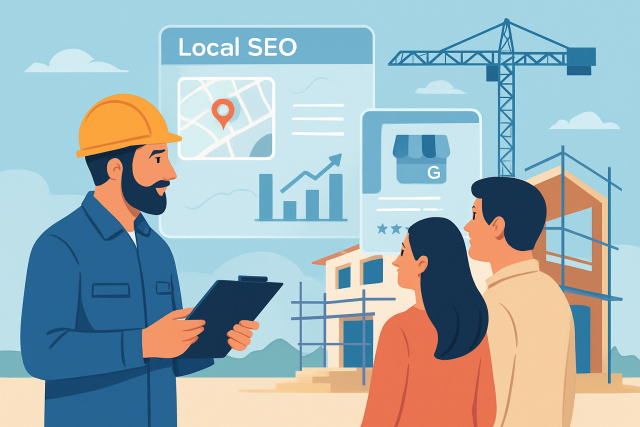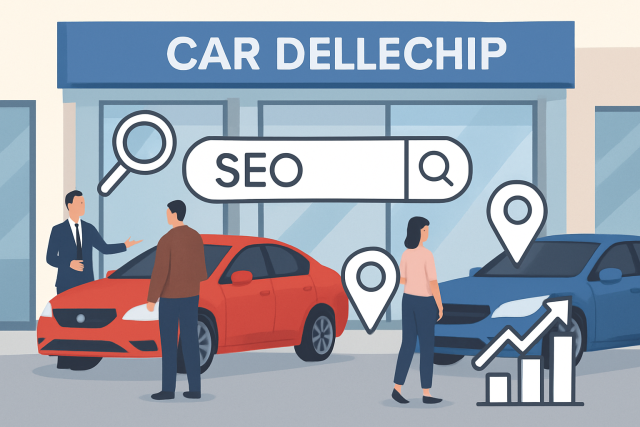
Reputation management SEO for local business growth
Discover actionable steps to harness reputation management SEO, boost local search rankings, and bui...

Local SEO is vital for hotels, restaurants and other neighborhood gems aiming to stand out and connect with their local crowd. Smart hospitality SEO strategies bring in foot traffic, boost your visibility in nearby search results and help turn casual online window-shoppers into real eager guests who book a stay or a table.
Hospitality SEO is about boosting the online presence of businesses in the hospitality world—think hotels, resorts, restaurants and event venues. Unlike run-of-the-mill SEO it leans heavily on local intent which makes it easier for potential guests to find the right spot nearby. The key moves include sprucing up Google My Business listings, keeping local citations in check and crafting content that truly resonates with local search terms.
It really pays off to get a solid grasp on what people are after whether they’re booking a hotel room, hunting for a good spot to eat or curious about nearby events. This helps you zero in on the keywords that are crucial.
Pinpoint your target locations and neighborhoods to keep your focus geographically relevant. After all, scattering your efforts too thin rarely pays off.
Take a good hard look at your competitors’ keywords and online presence in those specific areas because you might just uncover some hidden gems.
Lean on keyword research tools like Moz Pro or Mangools’ KWFinder to dig up local insights that can give you the edge.
Sprinkle in long-tail, location-based phrases to better catch those specialized search intents that often fly under the radar.
Zero in on keywords that tend to drive solid booking or inquiry potential since it’s all about boosting conversions where it counts.
Keep your keywords fresh and lively by updating them regularly. Staying on top of seasonal trends and shifting search behaviors really pays off over time.
Google My Business is a real game-changer for hospitality businesses trying to make their mark in local search and on Google Maps. Once you’ve claimed your listing, verified that it’s truly yours and filled out your GMB profile with accurate details you’re setting yourself up to be discovered more easily.

Screenshot example of an optimized Google My Business listing for a hospitality business
Customer reviews really pack a punch when it comes to hospitality SEO because they can make or break your local rankings and earn you trust from potential guests. Getting people to chime in on sites like Google, TripAdvisor and Yelp and keeping a close eye on that feedback to respond thoughtfully often works wonders for your online reputation.
Invite guests to share their thoughts by warmly asking for reviews at checkout or in a follow-up email. People generally appreciate being heard.
Respond to every review promptly and with professionalism to really show that you value their feedback because it makes a world of difference.
Tackle negative comments gently by offering thoughtful solutions and suggesting a private chat to smooth things over. It’s amazing how much a little kindness can help.
Highlight positive reviews on your website to build trust with potential guests since good word-of-mouth goes a long way.
Use the gems hidden in reviews to spot fresh ideas for content and find new ways to up your service game.
Creating content that truly speaks to your local hospitality scene usually hits home with both tourists and residents alike. Whether it’s blog posts or city guides, event listings or cultural features, weaving in local keywords and themes tends to build stronger connections.
Technical SEO is truly the backbone of any solid hospitality SEO strategy. Making sure your site works smoothly on mobile is essential, especially since many people now prefer to book on their smartphones. Fast loading speeds not only make the experience smoother but also boost your search rankings. Adding schema markup for hotels and restaurants helps search engines understand what you offer, making everything clearer and more appealing. Securing your site with HTTPS is not just about meeting a requirement. It also protects your customers' data and builds important trust.
| Aspect | Hospitality Relevance | Implementation Tips | Impact on Local SEO |
|---|---|---|---|
| Mobile-friendliness | Absolutely essential for guests booking or casually browsing on their phones | Use responsive design and double-check performance on a variety of popular devices to cover all bases | Greatly improves user experience and gives your rankings a nice little boost |
| Page Speed | Fast loading times keep visitors hooked and prevent them from clicking away out of impatience | Shrink image sizes, leverage caching, and tap into content delivery networks to keep things snappy | Results in higher rankings and fewer visitors bouncing off too quickly |
| Schema Markup | Makes it crystal clear to search engines what your hotel and restaurant are all about | Add LocalBusiness, Hotel, and Restaurant schema with JSON-LD to do the heavy lifting behind the scenes | Helps you snag rich snippets that catch the eye and boost your visibility |
| HTTPS Security | Protects sensitive customer info and payment details, which is a no-brainer in today’s world | Grab an SSL certificate and make sure every page automatically redirects to HTTPS without fail | Builds trust with customers and often gives you a nice lift in search rankings |
| Structured Data | Packs a punch for local SEO by feeding detailed info about your events and special offers | Set up event schema, menu markup, and local business info to tell search engines all they need to know | Encourages better click-through rates and shines a spotlight on your local presence |
Getting local backlinks and citations from respected sources can genuinely boost your hospitality business’s authority and search rankings. Teaming up with local organizations and sponsoring community events are solid moves. Make sure your business is listed in trustworthy local directories as well.
Double-check that your hospitality business is listed properly in reputable local directories that focus on your industry. It is a small but powerful step.
Team up with local influencers and travel sites to get meaningful backlinks because these connections can pay off in surprising ways.
Get involved with local events or charities to strengthen your community ties and earn valuable citations.
Contribute guest posts to regional hospitality-focused websites to showcase your expertise and share a memorable story.
Join local business networks and associations to boost your visibility and open doors for referrals since you never know where your next opportunity might appear.
Keeping a close eye on key metrics is absolutely vital when you want your hospitality SEO to deliver results. Tools like Google Analytics, Google Search Console and Google My Business Insights are your trusty sidekicks providing priceless insights into where your traffic is coming from, how your keywords are holding up in the rankings and what visitors are up to on your site. They also show the routes visitors take before finally converting.
Seasonal shifts cause demand to swing up and down and with competition breathing down your neck standing out feels like an uphill battle. Managing multiple locations adds complexity to keeping your SEO on point.
Keeping up with local SEO algorithm updates is absolutely vital for hospitality businesses aiming to stay visible in a crowded space. By consistently keeping a close eye on these changes—and adapting their SEO strategies on the fly—they can better navigate the ever-shifting market trends and those sneaky changes in search patterns that tend to catch individuals off guard.
A solid local SEO strategy for hospitality starts with a thorough audit followed by careful optimization, thoughtful content development and consistent management.
Kick things off with a thorough audit to get a real sense of how your local SEO and overall online presence are doing right now.
Claim and verify your Google My Business listing then give it a proper tune-up to make sure it stands out.
Dig into local keywords that truly reflect your hospitality services and the unique quirks of your location.
Set up a dependable system to consistently collect and manage customer reviews because those little voices matter more than you might think.
Create and refresh content regularly that speaks directly to your local hospitality crowd to keep it fresh and relevant.
Boost your website’s technical SEO by focusing on mobile usability, loading speed and structured data.
Score quality local backlinks and make sure your directory listings are accurate and up to date.
Keep a close watch on key metrics and adjust your SEO approach based on hard data instead of relying on gut feelings alone.

Discover actionable steps to harness reputation management SEO, boost local search rankings, and bui...

Local SEO for general contractors is a powerful way to capture high-quality local leads. This guide...

Discover practical, step-by-step strategies to optimize SEO for car dealerships. Increase visibility...

Explore the must-know key metrics for local SEO success. Learn how to track and analyze local search...